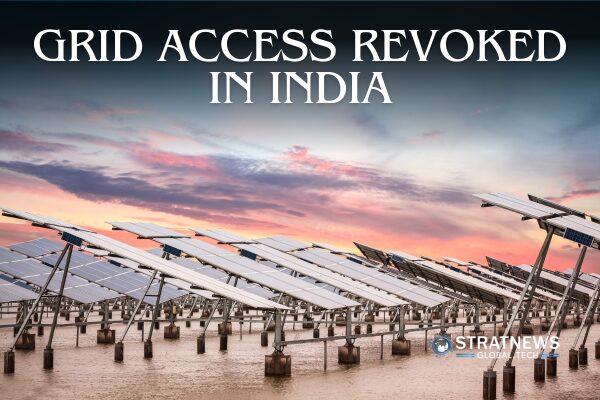India Cancels Grid Access for 17 GW of Delayed Clean Energy Projects
India has cancelled grid connectivity for nearly 17 gigawatts (GW) of delayed clean energy projects, aiming to prioritise operational and soon-to-be-completed projects. This move, taken by the Central Transmission Utility of India Ltd (CTUIL), is part of a broader strategy to ensure more reliable power supply as demand surges across the country.
According to documents reviewed by Reuters and a source familiar with the matter, companies including Adani Green Energy, ReNew Power, NTPC, Avaada Group, JSW Energy, and ACME Solar were notified of the cancellations. These projects were located in renewable-rich states such as Rajasthan, Gujarat, and Madhya Pradesh.
Cancellations Follow Inspection and Warnings
The CTUIL carried out manual inspections before terminating the grid access during the June quarter. Prior notices were issued to the affected developers. The companies are now seeking relief from the Central Electricity Regulatory Commission (CERC), India’s top power regulator.
JSW Energy has already challenged the cancellation. However, the CERC denied interim relief on 24 June and asked CTUIL to submit a response. The matter is scheduled for a hearing on 7 October. Adani Green Energy, meanwhile, claimed that no revocation was linked to delays in commissioning, though it did not offer further clarification.
Other developers and CTUIL have yet to respond publicly.
Grid Pressure and Clean Energy Goals
India’s growing electricity demand—driven by rising incomes, increased industrial activity, and urban expansion—has forced the government to streamline power grid operations. The country is targeting 500 GW of non-fossil fuel power capacity by 2030, but transmission infrastructure is struggling to keep pace.
India’s national transmission network currently spans around 495,000 circuit kilometres. To optimise usage, CTUIL is working to reallocate grid capacity to projects with timely progress, helping prevent bottlenecks and delays in power supply.
Stricter Regulations for Developers
In a separate move last week, India tightened grid access rules. Developers can no longer change the source of energy after securing grid connectivity. Additionally, project promoters must retain ownership until the project is commissioned. Failure to comply could lead to forfeiture of bank guarantees and cancellation of grid access.
These policy shifts aim to ensure that only serious and timely projects occupy limited transmission capacity, enabling faster integration of renewable energy into the national grid.
with inputs from Reuters


